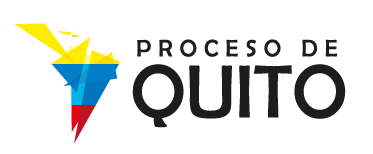Cross-border action plan to provide HIV / AIDS care
The subject of Health was recently discussed in the Lima Chapter. The Cross-Border Action Plan (PAT for its acronym in Spanish) will guarantee regional care for those affected by HIV / AIDS. Faced with COVID, a call was made to vaccinate nationals and migrants alike.
The flow of Venezuelan refugees and migrants in the region has changed the personal dynam-ics of those who choose to leave their country and the impact on host countries. On issues such as HIV / AIDS and COVID, the health consequences have been enormous.
On the subject of HIV / AIDS, it was imperative to know the status of implementation of the agreements established that seek to expand the coverage of health services, access to antiretro-viral treatment, and the transition to TLD for migrants, refugees, and asylum seekers living with HIV. It was also crucial to propose actions that addressed the gaps that arose from both the HIV epidemic and COVID-19 and how they impacted health and social protection systems.
In fact, the Santiago Declaration called for "updating a form with the indicators prepared by UN-AIDS to assess the region's current status in terms of HIV-AIDS in consultation with the respec-tive national authorities." Under the leadership of Argentina as a champion country and 104 at-tendees, the 106-minute thematic workshop addressed these issues and presented updated in-formation on how to care for the treatment needs of refugees, migrants, and applicants for asy-lum living with and affected by and affected by HIV and the COVID-19 epidemic.
The workshop was also started with the intention of agreeing on a Cross-Border Action Plan (PAT, for its acronym in Spanish), which would take as a basis the particularities of each health system to guarantee the coverage of care for refugees, migrants, and asylum seekers who live with or are affected by HIV and the COVID-19 epidemic, accelerating the transition to TLD.
At the end of the 106-minute workshop, the conclusions were as follows:
- Migration regularization is a way to guarantee greater access to health systems and access to antiretroviral treatment.
- It is necessary to rigorously deepen the epidemiological status of refugees and migrants from Venezuela concerning HIV, tuberculosis, and other diseases to reduce the lack of data.
- Formulate a cross-border action plan that coordinates health services to provide appropriate care to the refugee and migrant population with HIV / AIDS.
- Carry out advocacy actions with the Ministries of Foreign Affairs and develop informational ac-tions to guarantee the right of access to health services related to HIV / AIDS.
************************************************** ***********
Regarding the COVID issue, the Santiago 2020 Joint Declaration proposed "the exchange of in-formation and good practices to assist and attend to the needs of Venezuelan migrants and refu-gees in the context of the COVID-19 pandemic, including actions of prevention and protection of vulnerable and indigenous populations in border areas".
The workshop, led by Peru and with the support of PAHO / WHO as leading agencies, sought to analyze the impacts that the COVID-19 pandemic has had on the work and thematic areas of the VI Round, especially on displacement flows. Venezuelan migrants and refugees in the region.
As conclusions, the following was reached:
- Generate a mental health response model to reduce the psychosocial impact and encourage community and mental health care.
- Promote care for people with mental health problems. Provide psychosocial support to Covid survivors and relatives of deceased persons.
- Provide psychosocial support to health personnel who work on the front line.
- Include both the national population and the migrant population in vaccination.
- Collect, exchange information, and share good practices for the signing of new bilateral agreements and regional cooperation mechanisms on this issue.
Learn more about HIV/AIDS.


